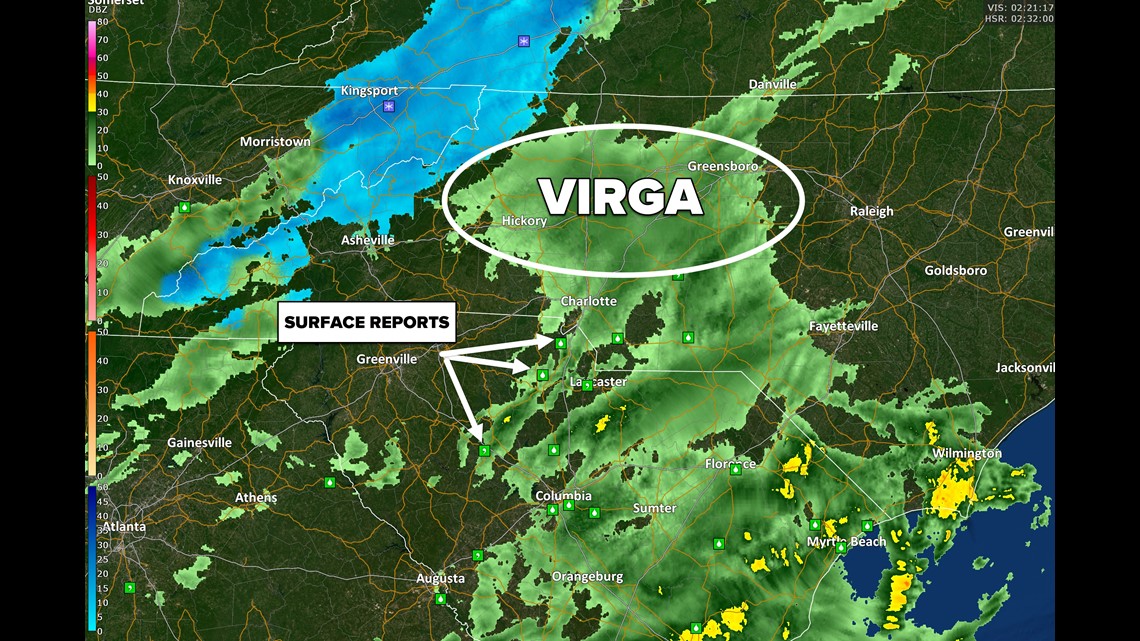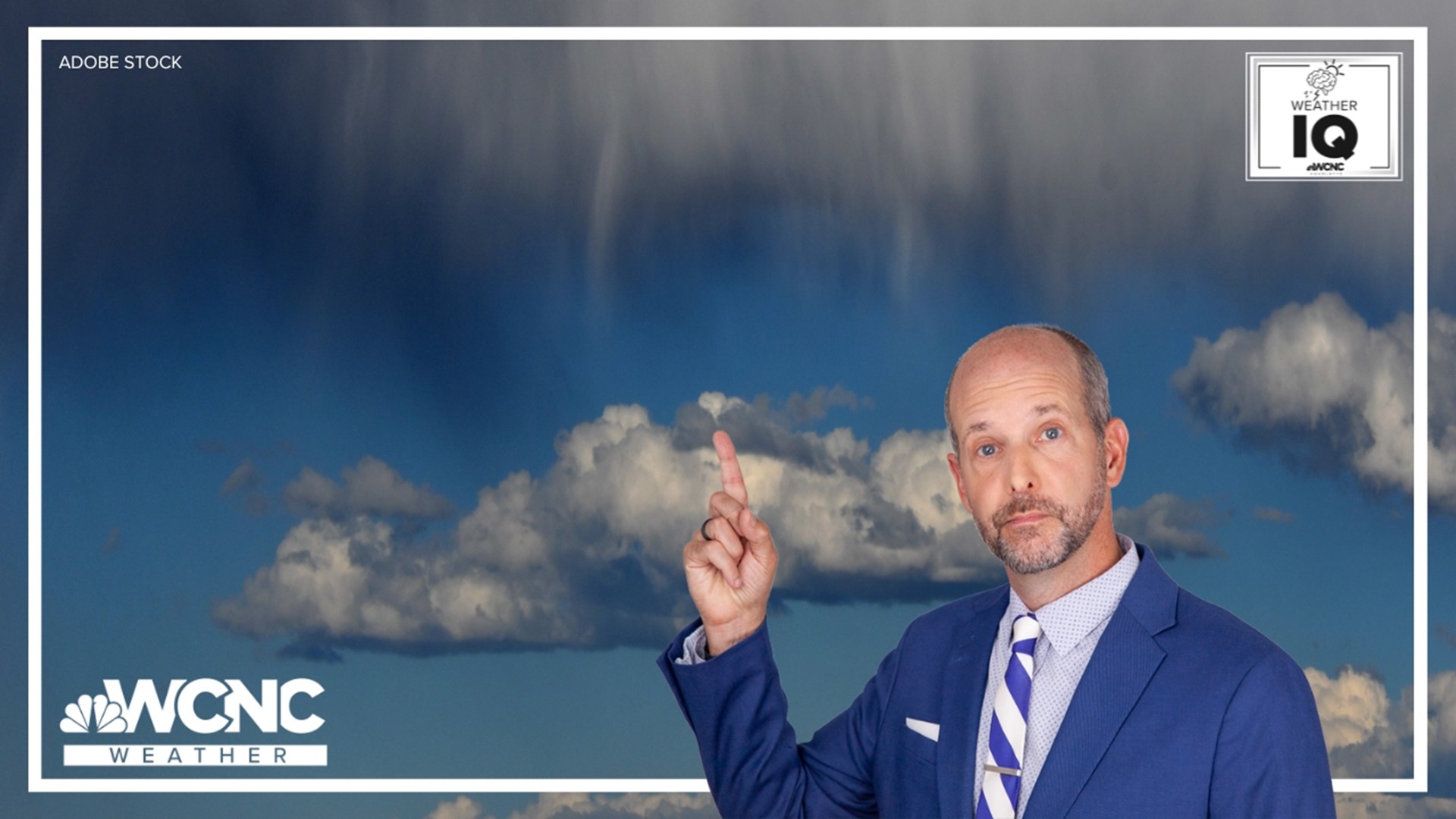CHARLOTTE, N.C. — If you ever looked at the sky and saw streaks of rain or snow falling from a cloud but never reaching the ground, you witnessed a phenomenon called "Virga." Another example of Virga is when the radar shows what looks like rain, but nothing is hitting the ground.
Virga is a Latin word that means "rod" or "branch", and it describes the appearance of these wispy trails of precipitation.
Virga occurs when precipitation falls from a cloud but evaporates or sublimates before hitting the surface. Evaporation happens when liquid water turns into water vapor, and sublimation happens when solid water (ice or snow) turns directly into water vapor without melting first.


Virga can happen in any climate, but it is more common in dry and warm regions where the air below the cloud is not humid enough to sustain the falling rain or snow. Virga can also happen at high altitudes where the air pressure is lower, and the temperature is colder.
Virga can have various effects on the weather and the environment. Sometimes, Virga can cool down the air below the cloud as the water vapor absorbs heat from the surroundings. This can sometimes really cool things down and, in the Carolinas, help cause cold air damming.
Virga can also play a role in cloud formation and development.
When small particles from one cloud are carried by the wind into another cloud, they can act as nuclei for water droplets or ice crystals to grow on. This can enhance the precipitation process and create more Virga or rain.
Virga is a fascinating meteorological phenomenon that shows how complex and dynamic the atmosphere is. The next time you see some Virga in the sky or on the radar, you can appreciate its beauty and its science.
Contact Brad Panovich at bpanovich@wcnc.com or follow him on Facebook, X and Instagram.
WCNC Charlotte’s Weather IQ YouTube channel gives detailed explainers from the WCNC Charlotte meteorologists to help you learn and understand weather, climate and science. Watch previous stories where you can raise your Weather IQ in the YouTube playlist below and subscribe to get updated when new videos are uploaded.

